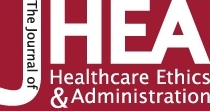Back Issue: Vol.8 No.1 (Spring 2022)
ISSN 2474-2309
Research Ethics
- Eunice Kimunai, Salome Mshigeni, Evangel Sarwar
Address correspondence to: Eunice Kimunai. Healthcare Subject Matter Expert, Defense Health Agency/Department of Defense, Virginia, USA. Email: kimunaieunice@gmail.com
Salome Kapella Mshigeni. Assistant Professor, Health Science Department, California State University San Bernardino, California, USA. Email: Salome.mshigeni@csusb.edu
Evangel Sarwar. Lecturer, Health Science Department, California State University San Bernardino, California, USA. Email: Evangel.Sarwar@csusb.edu
Pages: 1-12
According to the CDC Health Alert Network, as of September 27, 2021, more than 125,000 confirmed laboratory cases of COVID-19 were reported among pregnant women that resulted in more than 22,000 hospitalized cases and 161 deaths, with the highest death toll of 22 women in the month of August 2021 alone. There are many adverse pregnancy outcomes that have been reported among pregnant women who have contracted COVID-19 including severe illness, stillbirth, preterm birth, neonates’ hospital admissions into Intensive Care Units (ICUs), and death. Just one-third of pregnant women were fully vaccinated before or during pregnancy as of mid-September 2021. Evidence about the safety and effectiveness of COVID-19 vaccination during pregnancy, although limited, has been growing. The COVID-19 vaccine is recommended for pregnant women and those who are breastfeeding. This study examines ethical and practical implications of the COVID-19 vaccine among pregnant women. In this paper, we reviewed and presented 16 cases of pregnant women who were either vaccinated or unvaccinated against COVID-19 and share their health outcomes as retrieved from media sources. The findings mirror what the literature reports on the state of COVID-19 among pregnant women. Negative outcomes reported in the literature were also reported in our case reviews. This study presents a framework that will guide providers with messaging and provide information to help pregnant women make informed decisions about getting the COVID-19 vaccine.
- Austin Chapman
Address correspondence to: Austin Chapman. Virginia Commonwealth University. Email: chapmanak@vcu.edu
Pages: 13-16
The timeliness of patient care is often subject to the requirements of the prior authorization process for health insurance. From the perspective of insurance denials and administrative burdens, each stakeholder, including the patient, healthcare organization, and the payor, experience a degree of risk that requires the need to remove barriers affecting the prior authorization process. These challenges, however, can be combatted by seeking to enhance the communication between all stakeholders and integrating technology in a manner that creates a more efficient and effective prior authorization process.
Ethic report
- Evangel Sarwar PhD, MPH; Champagne Moore, MPH; Karina Corral, MPH; Monideepa B. Becerra, DrPH, MPH, CHES
Address correspondence to: Evangel Sarwar, PhD, MPH; Center for Health Equity, Department of Information and Decision Sciences, California State University, San Bernardino. USA. Email: evangel.sarwar@csusb.edu
Champagne Moore, MPH; Department of Health Science and Human Ecology, California State University, San Bernardino. USA. Email: champage.davis@gmail.com
Karina Corral, MPH; Center for Health Equity, Department of Health Science and Human Ecology, California State University, San Bernardino. USA. Email: kecorr01@gmail.com
Monideepa B. Becerra, DrPH, MPH, CHES; Center for Health Equity, Department of Health Science and Human Ecology, California State University, San Bernardino. USA. Email: mbecerra@csusb.edu
Pages: 17-26
The purpose of this study was to conduct a social media analysis on content related to electronic cigarettes, especially the validity of the information, audience engagement, and emergent ethical issues of health and related information on such a platform. Our results show a majority of the videos on social media platform analyzed were from individuals or organizations for marketing purposes, thus demonstrating a significant gap of needed public health driven content.
We further present unique characteristics of popular videos, such as duration, comments, and like to dislike ratios that public health program can mimic to gain acceptance for anti-tobacco initiatives. The lack of information regulation on validity further raises several ethical concerns and we provide recommendations for actions to ensure the audience of such social media platform receive experience an-unbiased view of electronic cigarettes and associated outcomes.
